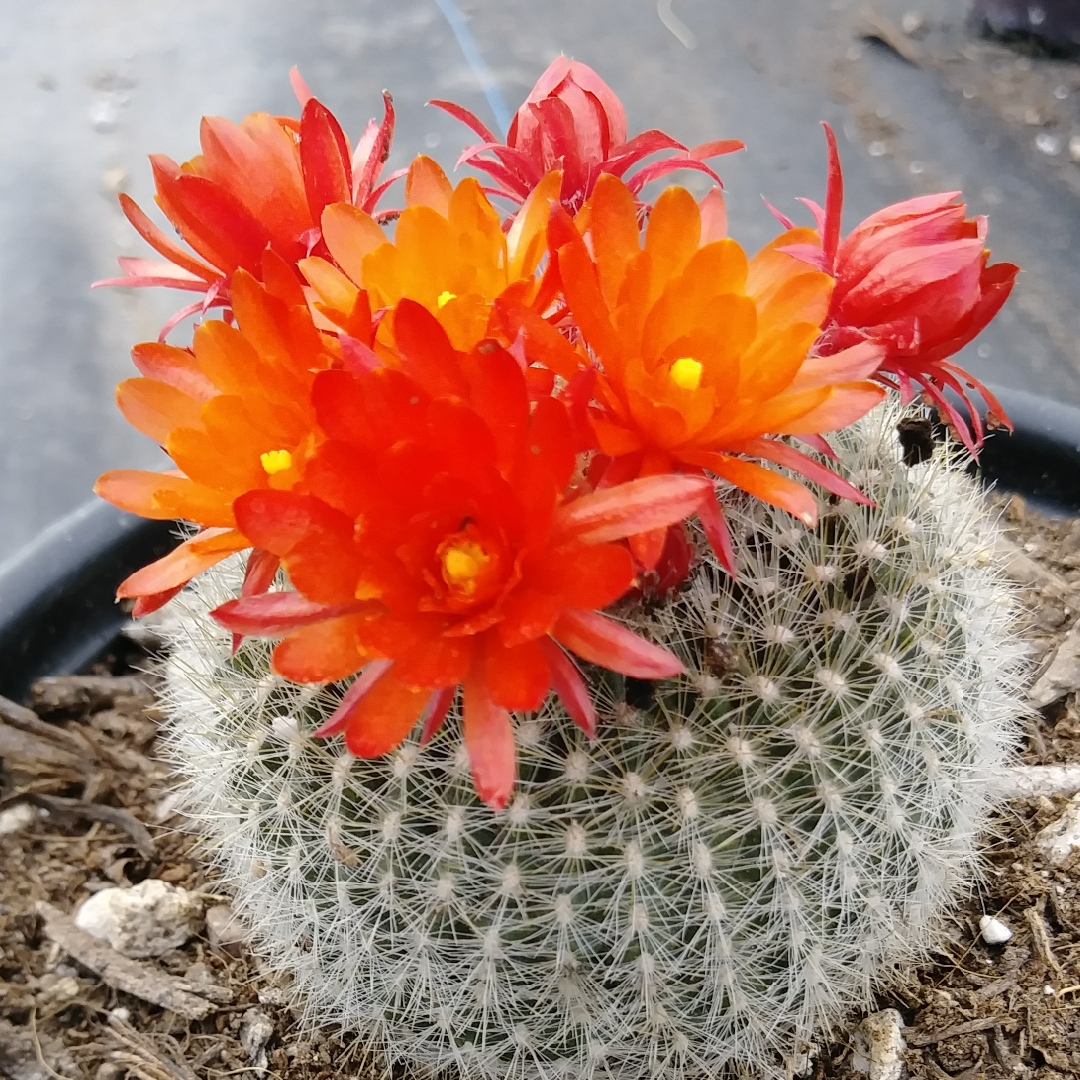
Parodia haselbergii syn. Notocactus haselbergii
Scarlet Ball Cactus
P. haselbergii is spherical,more or less flattened, bright green, almost completely concealed by dense spines, up to 10 cm tall, 15 cm in diameter. Parodia is a genus of cactus that range from small globose plants to 1 m tall columnar plants. They are deeply ribbed and spiny, with single flowers. Some species produce offsets at the base. They are popular in cultivation, but must be grown indoors where temperatures fall below 10 °C.
-
Full sun to partial shade
-
Very little water
-
Not Frost hardy
-
Light and free draining
Common name
Scarlet Ball Cactus
Latin name
Parodia haselbergii syn. Notocactus haselbergii
type
Succulent
family
Cactaceae
ph
5.5 - 6.5 Acid - Neutral
Plant & bloom calendar
-
Best time to plant
full grown dimensions
 0.15 M
0.10 M
0.15 M
0.10 M
Parodia haselbergii syn. Notocactus haselbergii
P. haselbergii is spherical,more or less flattened, bright green, almost completely concealed by dense spines, up to 10 cm tall, 15 cm in diameter. Parodia is a genus of cactus that range from small globose plants to 1 m tall columnar plants. They are deeply ribbed and spiny, with single flowers. Some species produce offsets at the base. They are popular in cultivation, but must be grown indoors where temperatures fall below 10 °C.
Planting young plants
From Early Summer TO Late Summer
Parodia typically don't like direct afternoon sunlight and should be in partial shade through the hottest hours. They can take direct sunlight in the morning and afternoons. A rich, fast-draining cactus mix is ideal. To plant, do this preferably during the warm season. To repot a cacti, make sure the soil is dry before repotting, then gently remove the pot. Knock away the old soil from the roots, making sure to remove any rotted or dead roots in the process. Treat any cuts with a fungicide. Place the plant in its new pot and backfill with potting soil, spreading the roots out as you repot. Leave the plant dry for a week or so, then begin to water lightly to reduce the risk of root rot.
Propagation
From Early Spring TO Late Winter
Parodia cacti can be propagated easily from offsets, which readily form in clusters around the base of the mother plant. To propagate, carefully remove the offset and allow the cut section to dry on a paper towel for a few days. Depending on the size of the cut area, a callous will form over the cut surface. Once the callous has formed, place the new plant in a pot with a potting soil mixture and keep in a warm place until new roots emerge. Once the plant is established, repot it into a regular container. Parodia are also relatively easy to grow from seeds. Once the sprouts have emerged, keep them regularly moist for the few months and be prepared to wait: some of the more common Parodia species can take a long time to grow to a decent size.











